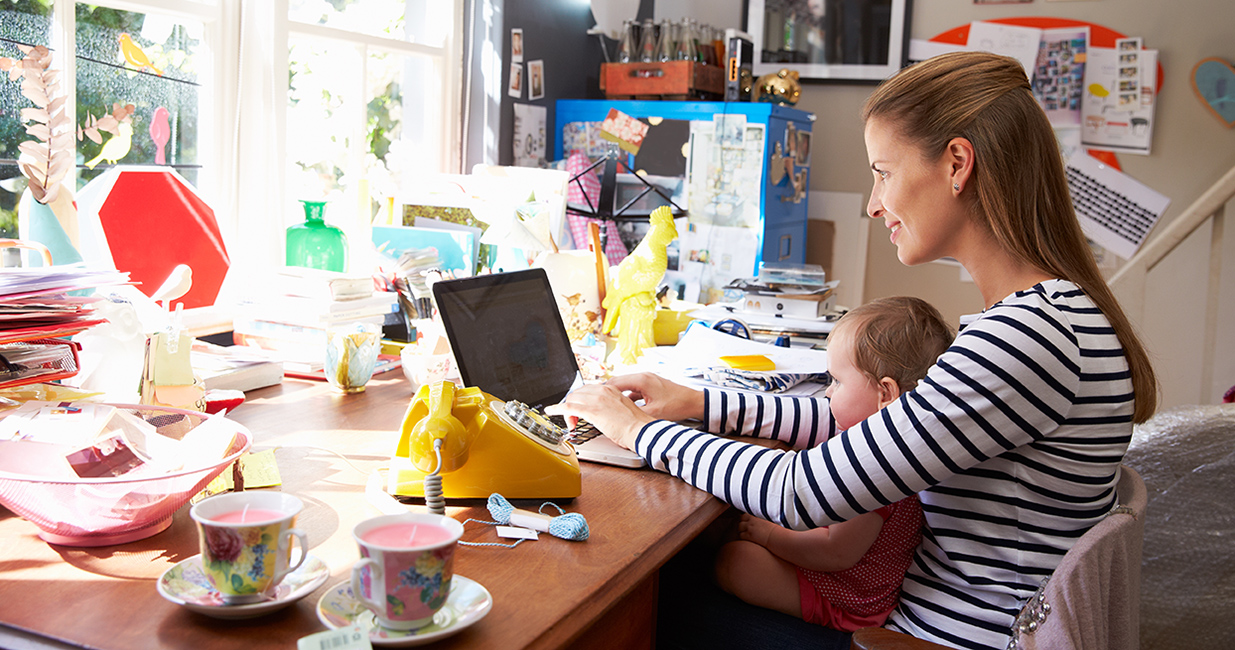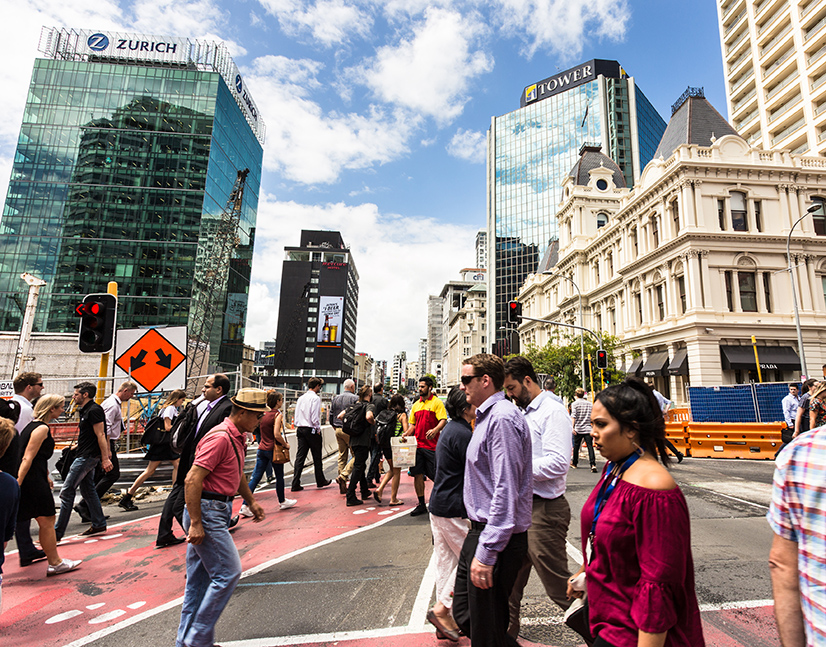
How the future works
Spending several months in lockdown gave us all a chance to contemplate our circumstances and what life might look like on the other side. If the working world does not snap back to the old norms, we will all need to pay more attention to the complexities of the changes we seem to be signing up to.
Laurence Davison Head of Content and Editor KANGANEWS
It has been interesting to hear over the past few months what people in our industry have made of the sudden and in many cases unprecedented switch to working from home.
As someone who has spent more than half their time doing just that for the past half decade or more, it was quite amusing to hear the surprise in people’s voices when they described how productive they found themselves after the change. I’m not arrogant enough to think anyone would have considered my working conditions in particular. But it certainly appeared that a lot of office-bound workers really did believe their home-working colleagues weren’t – for one reason or another – getting anything terribly productive done as soon as they were out of eye line.
On the other hand, more than three months into this dramatic change in working practices the initial rush of enthusiasm seems to be fading. For every person who comments on the boon of eliminating the daily commute there is another who yearns for the return of a clear delineation of the beginning and end of the working day. For every newly out-of-the-closet (or should that be happily in the closet?) introvert there are many more who are ready to say that, yes, actually sometimes it is nice to share a beer and a catch up with colleagues.
My sense is that people were initially pleasantly surprised at how easy it was to transition to working from home. But in the dark days of late March and early April everyone’s horizons were condensed: it was very much a case of getting through each day, whether that be in funding markets or business more generally.
The main issue, I think, is that home working is very good for some things and pretty terrible for others. Personally, I get a lot more done in my home office when it comes to process-based tasks: editing or working with data, for instance. It is also a good environment for individual creativity, which is why I get most of my writing done at home.
On the other hand, trying to bring together new or innovative projects while working remotely is massively more time consuming and prone to problems. Decisions that would be best made collaboratively often end up in one person’s hands for lack of easy, brief communication. Alternatively, you have to schedule endless calls and video conferences to achieve what could easily have been covered in five-minute chats across a desk.
The example I keep coming back to is bringing new team members on board. I imagine recruitment has been at an all-time low for much of 2020. But eventually we will need to replace staff or even – perish the thought – increase head count. Anyone who says it will be just as easy to integrate new team members, even experienced ones, via Zoom as it was in person is surely deluded.
As a conference organiser, I am of course also obliged to say there is no real replacement for the richness of an environment in which people from the same industry can meet and mingle freely, sharing information and ideas in a way that helps the market as a whole. KangaNews will continue to provide the content its events are known for via all suitable methods. But this only provides some of the value of a ‘proper’ conference.
"While people seem increasingly willing to take some degree of risk in their personal lives, the same can clearly not be said for the working environment. People who are willing to observe patchy at best social distancing in the pub on a Saturday night are also unwilling to take the train to work on Monday morning."
Outcome uncertain
This makes me tempted to say that, in time, we will likely revert to old ways of working – likely with more common mixed arrangements whereby people perhaps spend a day or two a week working at home. Human nature is a powerful mean-reversion tool and if there was a reason for office-based work before COVID-19 there should be no reason not to return to it afterwards.
But I am less confident about this outcome than I was. For one thing, the situation in Melbourne provides a frightening reminder that we will never really be free of COVID-19 until there is some form of medical solution – which cannot be guaranteed, and certainly not in the near term.
While people seem increasingly willing to take some degree of risk in their personal lives, the same clearly cannot be said for the working environment. People who are willing to observe patchy at best social distancing in the pub on a Saturday night are also unwilling to take the train to work on Monday morning.
It’s hard to blame them, to be fair: people have every right to take their own risks on their own time but refuse to take them for their employers’ sake. The stories emerging from the US about hospitality workers being forced to come back to work in patently unsafe conditions are all I need to know about where the balance of power in employment relationships has shifted and why I don’t want it to shift further.
Of course, responsible employers with the option not to force people back to the office will be cautious. Most firms in our industry are not planning a return to full office working this year, if at all.
Perhaps, too, the Melbourne experience will cause people to be less blasé in their personal lives. But I am not sure the appetite exists for prolonged periods of social distancing. In the end, people may decide they would prefer to let the virus run its course, whatever its cost, than submit to months or years of inconvenience.
It will be interesting to see where peer pressure and social norms shift. It’s easy for those with spare bedrooms or even holiday homes to pontificate about the joys of a long-term switch to working away from the office. But the graduate in a share house or living with their parents might find the office a superior option. And what about when a big project deadline comes due? Are we all really going to think just as much of the team member who says they aren’t coming in to the office when everyone else is there to get the job done?
"This could all turn into yet another giant redistribution of wealth from the public purse and individuals to companies. Will it become a condition of employment to have a functional home-office setup – including not just office equipment but a suitable workspace?"
Economic impact
The other thing I have not seen discussed at all is the economics of a wide-scale shift to home working. Hundreds of thousands of Australians will be looking forward to healthy cash supplements this year as, for the first time, they add a raft of home-office expenses to their tax returns. Of course many will also have had to upgrade their domestic setup with better internet connections – to the extent such a thing is available in Australia – and printers, desks and the like.
This could all turn into yet another giant redistribution of wealth from the public purse and individuals to companies. Will it become a condition of employment to have a functional home-office setup – including not just office equipment but a suitable workspace? Will the public purse be able to afford to continue to subsidise home-office expenses if they become the norm for many more people?
This all adds inputs to the ongoing equation of how people choose to live. If many more of us start to need extra rooms in our houses from even quite early in our professional lives, the impact on the shape of cities could be radical. New entrants to the workforce may be less able to live in small, inner-city apartments if they need to provide their own home office space from the outset.
We already know that home working is not a luxury afforded to everyone: those in hospitality, manual workers and the like already have to leave the house to work or not work at all. But unless we retain the expectation that a workspace will be provided by one’s employer is extended beyond the boundaries of a centralised office, it is easy to see how the move to home working will be one only the most privileged are able to take advantage of in the long term.
When I say ‘take advantage of’ I mean it in productivity terms, too. The office is at least a relatively egalitarian space where we all get roughly the same equipment and work in somewhat similar conditions. It is hard to imagine the senior manager in their well-appointed home office having the same productivity struggles as a new graduate squeezing a laptop onto the same kitchen table as his or her three housemates.
The problem is we are adapting to circumstances we did not ask for or anticipate, which gives us even less scope than usual to work out how we actually want to address a different future. We need to start doing so, however, unless we want to see yet another example of unconstrained passing of value up the wealth and privilege chain.
One way to start would be to enshrine in all our expectations, and perhaps even in law, the concept that the employer is responsible for providing the necessary space and equipment employees need to do their job adequately. In all likelihood, this means centralised office space: if you want to ask your boss to buy you and your colleagues bigger houses so you can fit in home offices by all means do so – and please let me know how it goes.
Such rules could be overridden on a temporary basis in the event that offices become unusable. A state of emergency brought on by a pandemic would be a perfect example of a time during which it would be acceptable for employers to require – temporary – flexibility.
But the reality is we seem to be moving from an assumption that employers cover the cost of the workspace to a place where this may no longer be the case. We should at least discuss the consequences before the cost defaults to people who are less able to bear it.












